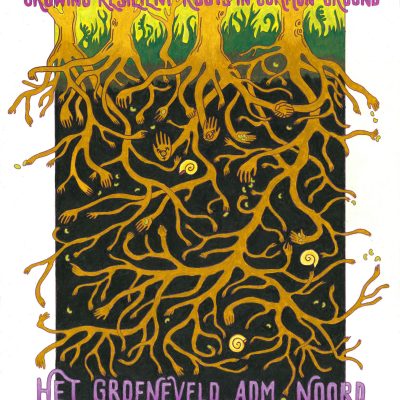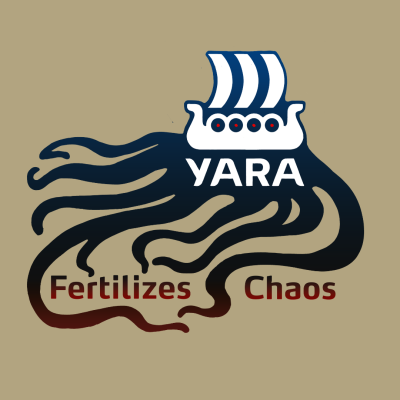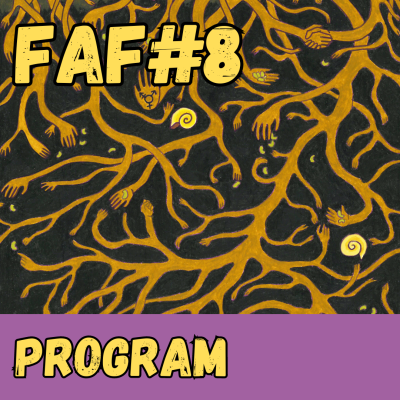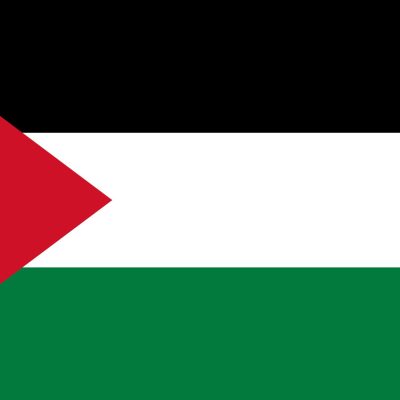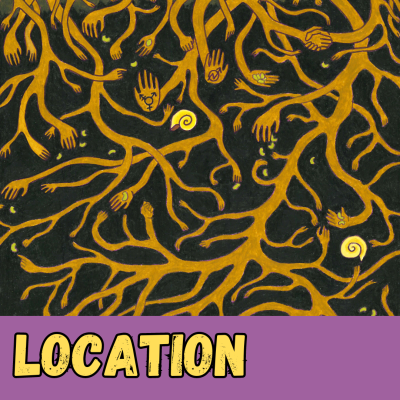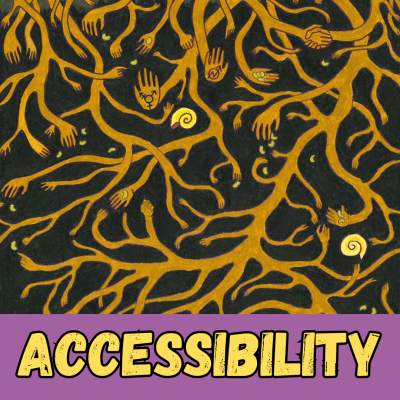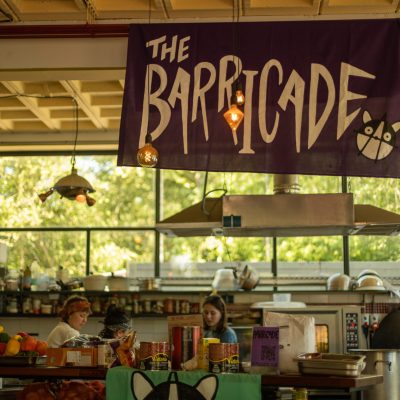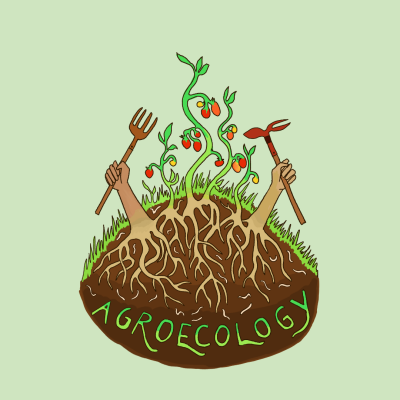Last December, some people from the ASEED team went to Catalonia for a youth exchange programme called GENERA (Gender Empowerment in Rural Areas).
We learned a lot during the training and because of this we decided to share our experiences and insights we gained during theses days. In this report about the GENERA programme, we will first sketch roughly what happened during these days, then we will discuss more in depth the different guest speakers which visited GENERA, following a section which focussed on the different participants and their projects/organisations and last we will sum up the insights that we gained from this programme.
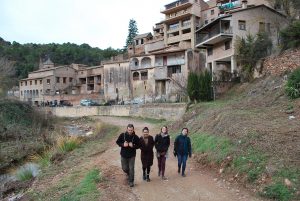
After a long bus journey, we arrived on Friday December 13th in Mura, a remote village in the central region of Catalonia where the GENERA programme took place. From the start it was already rather interesting to meet the different participants of the GENERA programme and discuss issues around Gender empowerment, food sovereignty, agroecology, environmental activism etc. Only from meeting these people from different contexts (Greece, Catalonia, Azerbaijan, France, Portugal and Italy), with different expertises, we already learned a lot.
During these days, several people from Catalonia based organisations, came to visit us: La Revista Soberanía Alimentaria, Mengem Bages food coop, Seed-links, The Shepherds school Escola de Pastors, COOP 57 (Els Caus de Mura Hostel) and Les Refardes. They talked about their organisations, but also they created space for discussion and interaction with the participants about the topics that came up during their talks. Since all these organisations are catalan, it was especially interesting to see how they are linked in different ways to each other and to get a rough idea about how they cooperate together in the context of Catalonia and Spain. Next to that, there was always time spent apart from these workshops/lectures to reflect with the other participants of GENERA on what we have learned from them and what we can do with this information.
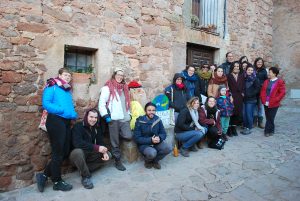
After that, most days we spent time on working together with our working groups on our final project which was presented on the last day of the programme.
These final projects reflected on what we have learned within this week and encouraged us to creatively present ideas and concepts which we gathered during these five days. As mentioned above, the participants of the training had various backgrounds, which brought diverse knowledge in addition to the speakers. Some are part of small grass-root organisations , seed savers, anti-fracking activists, urban gardeners, broadcasting their own radiochannel, running autonomous spaces in rural areas, local (rural) feminist movements or running a CSA (Community Supported Farms) among others. Common for all was a genuine interest in agroecology and feminism, but from different perspectives.
Bringing our experience as a city based activist group and creating a big network with all these collective was very fruitful for us to connect with people with different (rural) backgrounds.
The different projects/organisations that visited GENERA:
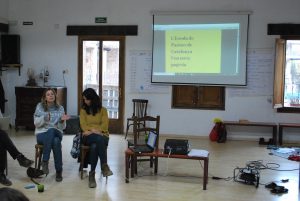
Catalonia’s Shepard’s School, L’Escola de Pastors de Cataalunya
Vanessa Freixa presented this project as one of the founders of the school together with other women. Living in a world where being a shepherd is associated with men, they found it important to start this project to create opportunities for women and encourage them to become a shepherd. It is a project existing for 10 years already and based in the Catalan Pyrenees. Their main activity is the Shepherd training; a full course of theory and practices in agro-livestock farming. They focus on small scale farms with an extensive agriculture philosophy based on agro-ecological principles. One of the main aims is to fight industrial livestock agriculture by encouraging traditional ways of farming and promoting neo-ruralism. They do this through encouraging a commitment to small-scale, family based projects and cooperative production which is sustainable for the environment and the local sector. They also develop other project lines such as supporting access to farmland, professional advice to Shepherds, former students and general youth awareness. Read more here.
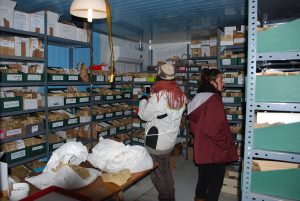
Les Refardes
All the GENERA participants went to Les Refardes (located in Mura) to visit their offices and seeds. There, we met Ester Casas one of the members of the cooperative. We visited their space where they not only sell seeds but also they do the cleaning, separation and storage of the seeds. Les Refardes is an association formed by a group of people in 2004. They work to create a network of self-managed local organic seed producers and distributors. They promote free seed exchange and seed knowledge dissemination by establishing links between farmers, consumers and collectives. As a cooperative they team up with 18 different seed savers or farms, practicing disobedience through their seeds sharing. They see this as a form of protest against seed patents and other corporate controlled regulations. They also do their own seeds cleaning, production, programming, selection, germination control and sales. Read more or order seeds here.
Els Caus de Mura and COOP57
Els Caus de Mura is the hostel where most of the GENERA programme took place and where all participants were hosted. It’s a cooperative (hostel and restaurant) located in the beautiful town of Mura part of the XES (Social Economy Network). Ferran and the rest of the members of the cooperative took care of the whole group and gave us a presentation about this initiative. The project started after receiving support from different ethical, cooperative and non-profit institutions like COOP57. Cooperativa57 is a financial service cooperative aimed at granting loans to projects that are part of the social solidarity economy in Spain. The coop started in 1995 and its nowadays decentralized existing in different cities from Spain.
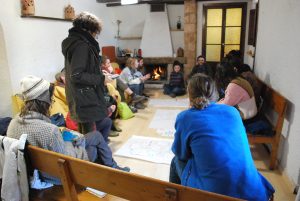
La Revista Soberanía Alimentaria, Biodiversidad & Culturas
La Revista is a food sovereignty magazine which debates and reflects on what makes up the reality of rural life throughout Catalonia and Spain. It is distributed throughout Catalonia and Spain (also free to download online). They try to improve the visibility of women through the stories they tell in interviews, the authors they choose and 80% of their illustrators being women. The magazine also takes a rural, feminine, diverse and anti-capitalist perspective with beautiful illustrations throughout. Check it out here.
One of the founders, Gustavo Duch, talked about this project, but also taught us about gender visibility in rural areas through a presentation followed by a nice interactive workshop, where our own assumptions where critically examined.
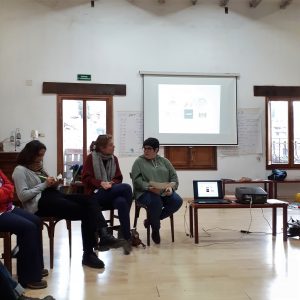
Mengem Bages
Horizontally organised food cooperative in Catalonia, completely run by women. They have a physical store in Manresa, an online and telephone order store and provide food baskets to over 40 members. They also provide food to some school caterers. For waste food they have a list of families who they can notify when there is food to collect that would otherwise go to waste. On top of this, they recently started organising workshops at schools, a yearly tomato harvest festival and more. Check out their website here.We got very inspired by Alba Rojas, one of the members of the coop that came to the GENERA training and explained to us in detail how they operate and all the ethics and philosophy behind the project.
Seed-links
Website whereby the journey from seed to consumer is traced for three types of agriculture: Agro-ecological, Certified organic, Chemically intensive and Genetically modified. It was created by three women, one of who worked with ASEED in the past, which was a nice coincidence. The website was made with the goal of informing people through simple visualizations on how our various agricultural systems are organised. Check it out here. One of the team members of seedlinks, Rosa Binimelis, an Environmental Scientist & Ecological Economist, came to talk about her own work as an activist and academic at the VIC University, and how these two positions both can strengthen eachother but also how difficult sometimes activism and academia go together.

